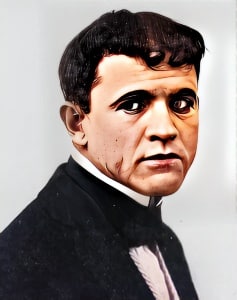Loading live eBay listings...
 William Elmer Booth, born on December 9, 1882, in the cinematic hub of Los Angeles, emerged as a significant figure in both stage and film during the early 20th century.
William Elmer Booth, born on December 9, 1882, in the cinematic hub of Los Angeles, emerged as a significant figure in both stage and film during the early 20th century.His journey from the stages of touring stock companies to the silver screen marked a trajectory that showcased his versatility and left an enduring mark on the nascent film industry.
Booth’s foray into the world of acting began at a young age when he joined touring stock companies, honing his craft on the stages of theaters across the country. Notably, his talent garnered acclaim during his tenure with the stock company at the Central Theater in San Francisco from 1903 to 1906. This period of theatrical apprenticeship laid the foundation for Booth’s future success in the entertainment industry.
The transition from stage to screen proved seamless for Booth, as he embarked on a prolific film career between 1910 and 1915. Over this period, he amassed a filmography that included 40 movies, with each role contributing to his growing reputation as a compelling and versatile actor.
One of Booth’s standout performances came in D. W. Griffith’s “ The Musketeers of Pig Alley” (1912). Widely regarded as the first gangster movie by film experts, this groundbreaking film cast Booth as “The Snapper Kid,” a Manhattan street tough embroiled in a turf war on the Lower East Side. Unlike the conventional villains of the era, Booth’s interpretation of the gangster character was revolutionary—a cocky, entertaining antihero who defied the stereotypes of teeth-gnashing antagonists.
“ The Musketeers of Pig Alley” signaled a shift in the portrayal of crime and urban life on screen. Booth’s charismatic portrayal contributed to the film’s success, setting a precedent for nuanced and multifaceted depictions of characters navigating the challenges of city life. The Lower East Side became a canvas for storytelling that transcended simplistic moral dichotomies.
Tragically, Booth’s promising career was cut short when he met an untimely end on June 16, 1915, in a subway accident. His death marked a somber moment in the film industry, robbing audiences of a talent that had only begun to showcase its potential.
Beyond his contributions to the cinematic landscape, Booth’s legacy extends through his familial connections. His younger sister, Margaret Booth, became a renowned film editor whose career spanned nearly seven decades, leaving an indelible mark on Hollywood productions.
William Elmer Booth’s impact on early American cinema reverberates through the innovative and groundbreaking roles he brought to life. As an actor who navigated seamlessly between stage and screen, he played a pivotal role in shaping the evolving narrative techniques of the silent film era—a legacy that continues to be celebrated by film enthusiasts and historians alike.
Loading live eBay listings...